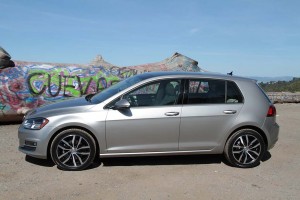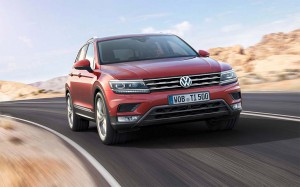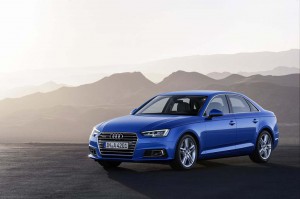The ongoing crisis triggered by Volkswagen’s diesel emissions cheating scandal continued to take a toll on the automaker last month.
The VW brand reported a 10.6% sales slide last month, making it one of the few brands to see a dip at a time when the American car market is running red hot. The downturn came despite a sharp increase in VW incentives in recent months.
The news wasn’t all bad, however. VW did see a strong upturn in demand for its newly updated Tiguan sport-utility vehicle, and sibling brands Audi and Porsche scored big sales gain in March, despite also being tainted by the diesel scandal.
(With few exceptions, March delivers strong U.S. sales. Click Here for the latest.)
VW’s sales have been running in the wrong direction since last autumn, when the U.S. Environmental Protection Agency revealed the maker had secretly installed a so-called “defeat device,” software designed to help it pass emissions tests with its 2.0-liter turbodiesel. Under normal conditions, vehicles like the Passat TDI would produce significantly higher emissions of smog-causing oxides of nitrogen.
Subsequently, the German maker acknowledged it had also cheated on emissions tests with the larger 3.0-liter turbodiesel shared with various Audi and Porsche models. All of the vehicles sold by the three brands using either of these diesels have been ordered off the market until a fix can be found to make them comply with U.S. emissions rules. Last week, a federal judge extended the deadline for VW to come up with an acceptable solution.
But the lack of TDI versions of the Golf, Jetta and Passat models – which had accounted for 25% of VW’s U.S. sales – has hurt the maker badly. In March, the Golf was down 3.2% year-over-year, the Jetta off 9.6%, and the Passat down 21.8%.
And that was despite a ramp-up of incentives on VW’s gasoline-powered models. According to tracking service TrueCar, the average VW model came with a $3,349 giveback in March 2016, up 21.6% from year-earlier incentives. The industry, as a whole, offered givebacks of $3,005 per vehicle, a 10.4% increase, in March of this year.
(Analysts warn about the dangers of rising incentives. For more, Click Here.)
Despite the numbers, Mark McNabb, chief operating officer for Volkswagen of America, focused on the positive side, declaring that, “While overall sales saw a decline for the month, Volkswagen dealers improved in terms of retail business.”
For the VW brand, the best news was the 53% year-over-year gain by the recently updated Tiguan, one of the maker’s two utility vehicles. The U.S. market, on the whole, has been shifting from conventional cars to various light trucks, including SUVs, crossovers, vans and pickups. VW has lagged the market in the number of utility vehicles it offers, but is preparing to soon launch production of a version of its CrossBlue concept at its factory in Tennessee. A second U.S. ute is also under development.
The lack of diesel models has also had an impact on Porsche and Audi, albeit a far less significant one. Audi managed to achieve a 7.5% sales gain in March, its 63rd consecutive monthly increase. And Porsche was also up for March, even if by only 32 vehicles, to 4,323.
The decline in demand for the Volkswagen brand has complicated the parent company’s problems. It is facing hundreds of lawsuits filed by diesel owners, stockholders and dealers. And it is facing both a criminal investigation and a civil suit filed by the U.S. Justice Department that could see it hit with a potential $46 billion fine.
(Tesla rolls out new Model 3, advance orders quickly top 130,000. Click Here for the story.)



